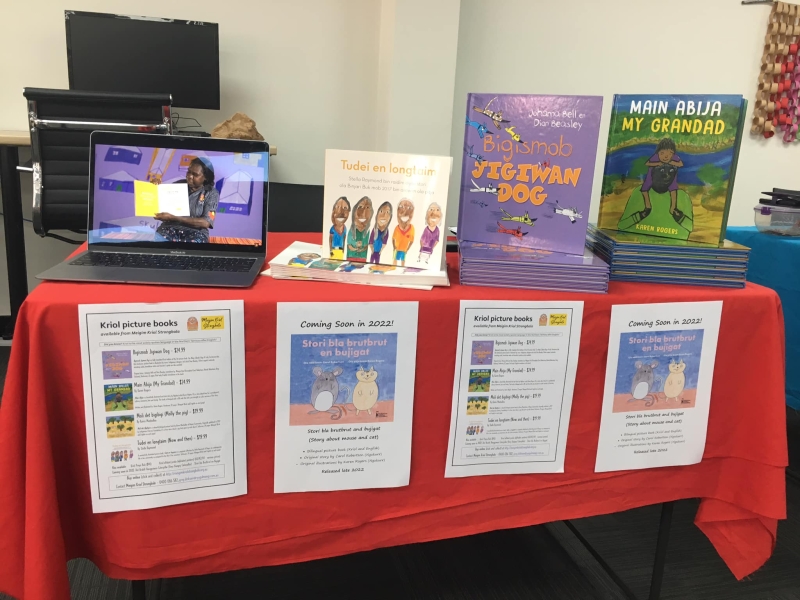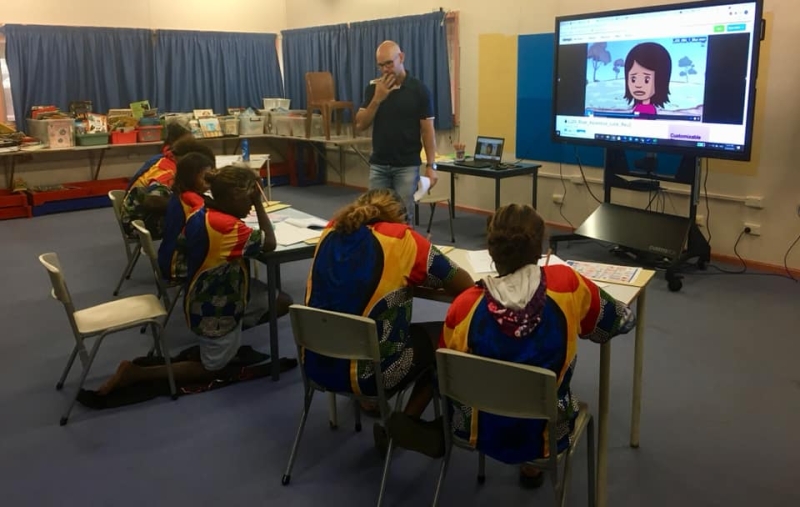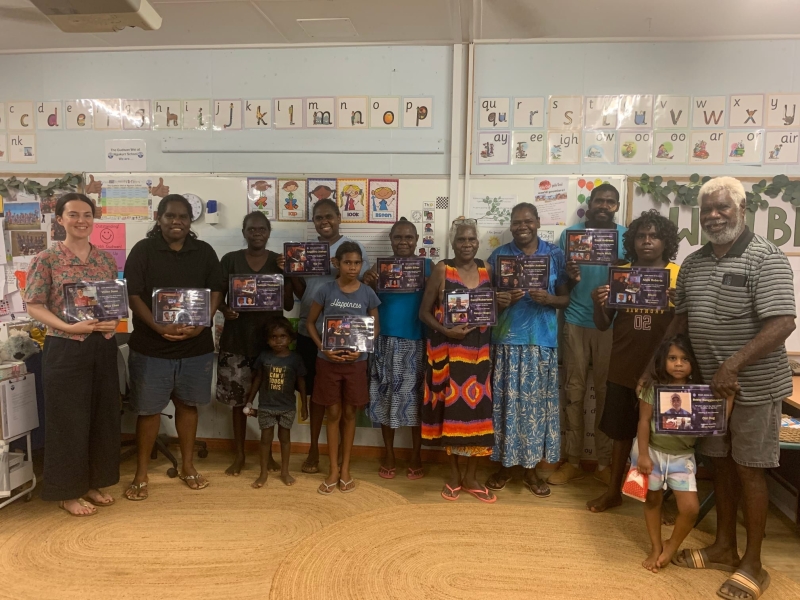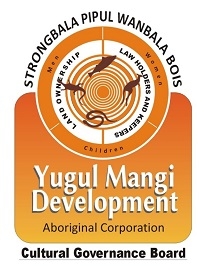The future is strongbala
Australian Kriol ... it’s the most widely-spoken language unique to Australia, and most people have never heard of it. Yugul Mangi Development Aboriginal Corporation of Ngukurr in the Northern Territory is hoping to change that through its Meigim Kriol Strongbala (Make Kriol Strong) program.
Yugul Mangi’s social programs branch – of which Meigim Kriol Strongbala is part – is funded through the Australian Government’s Stronger Communities for Children Fund, which allows the Yugul Mangi Board to use the funds to support their own vision for children, young people and families in Ngukurr.
Creole is the general term for a language formed by languages coming into contact and mixing with each other. Kriol is a creole language adapted from English that incorporates features of Aboriginal languages. It is classified as a new Indigenous language born out of colonisation. It has its own distinct vocabulary, pronunciation and systematic grammatical rules.
There are at least 20,000 Kriol speakers across the Top End, from the Gulf of Carpentaria to WA, about as far south as Tennant Creek and north to Darwin. It’s known as ‘Kriol Kantri’. In the 2021 Census, around 7,500 people said they speak Kriol at home, with 1 in 8 of them living in the community of Ngukurr.
‘We identified the need for Kriol to be included in the education system and for more resources to be created,’ says Greg Dickson, the program manager of Meigim Kriol Strongbala.
‘We approached the school in 2019 to see if any classes wanted to take part and now, 3 years later, every class has a Kriol program. The school could see that the kids were engaging really well with the Kriol programs we were running … and it made school very part of the local context,’ he says.
The program has created books, videos and social media using Kriol and the website boasts a wide range of resources, including links to a Kriol dictionary, tips on Kriol literacy and links to research on the language itself.

The star of Meigim Kriol Strongbala, though, has to be the translation of two episodes of the Little J & Big Cuz children’s show into Kriol. A group of 12 upper primary and secondary students brought not just the language, but authenticity in the way children use it, to their translations.
It all started when Greg contacted the producer of Little J & Big Cuz to ask about access to the scripts for class activities. When it came to Season 3, the producers came back to Greg to say that they’d like to make some episodes for real.
So Greg gathered the strongest Kriol writers in the school and they worked together twice a week to translate the scripts. The kids were so keen they even worked on the project during the school holidays.

Greg and the students hard at work
Translations for the two episodes took about four months and from there, the audio producers came out to choose people to voice the characters.
‘It was tricky, because while the kids did all the translation they needed adults for the actual recording,’ says Greg.
After all that work, Little J & Big Cuz in Kriol had its ‘world premiere’ at Ngukurr School in December 2021. It was an extra-special event as not even the English episodes of the third season had been released yet.

The Kriol cast of Little J & Big Cuz at Ngukurr’s ‘world premiere’
After the launch of the new episodes, all the teachers were given copies to show in class, which were watched many times in the last week of the school year.
Programs like Meigim Kriol Strongbala are helping to dispel the perception that Kriol is an inferior form of English and resources like books and cartoons can help Kriol speakers to feel good about the language they speak, and raise the prestige, status and appreciation of Kriol.
Looking to the future, the plan is to increase the range of resources they can make available. In the pipeline are more books and a project to digitise classroom resources and house them on the program’s website for other schools to use. Greg is currently trying to figure out the best way to get books for upper and middle primary to accompany their early childhood literacy catalogue.
The program is still so new that there’s plenty of room to grow and evolve, but one thing is certain – the future is strongbala.
More about Yugul Mangi Development Aboriginal Corporation

Meigim Kriol Strongbala is just one of more than 40 social development programs offered by Yugul Mangi Development Aboriginal Corporation (YMDAC). The corporation was established in 2008 to represent the community of Ngukurr in the Northern Territory and now has 14 directors to represent the 7 clans of South East Arnhem land. YMDAC is the main community reference group, working closely with other community reference groups in Ngukurr, while the Roper Gulf Regional Council handles basic services.
The corporation also develops businesses and supports joint venture partnerships for the local Indigenous community to drive economic participation. Locally, YMDAC does Concrete Batching, operates the Darlala Motel, undertakes housing repairs and maintenance and tenancy and delivers Indigenous employment programs delivering training and workforce development. YMDAC is also the trustee of the trust which operates the Ngukurr General Store, managed by Outback Stores.
The goal of all these ventures is to support the Yugul Mangi people’s aspirations to move away from government and welfare dependency. Profits from the ventures are contributed to a community benefit account. Funds are used for initiatives and projects that progress the goals and aspirations of the community.
In May 2018, YMDAC, Australian Government and the Northern Territory Government made history by signing and implementing the first local decision-making multi-agency partnership agreement in the Northern Territory. They made a 10-year commitment to work collaboratively to give a stronger voice to the Ngukurr community. In 2021 they again made history by becoming the first group to sign a second implementation plan for a local decision-making agreement.
Central to these agreements is recognising Yugul Law when designing and implementing programs for Yugul Mangi people. The implementation plans include incorporating Yugul law into the governance structures when designing programs, and ensuring the staff and contractors of partners learn Yugul Law and Kriol language.
Most importantly, these agreements aim to create a future where culture and values connecting Yugul Mangi people to Country are sustained and celebrated, and a future with improved opportunities for health, wellbeing and prosperity.